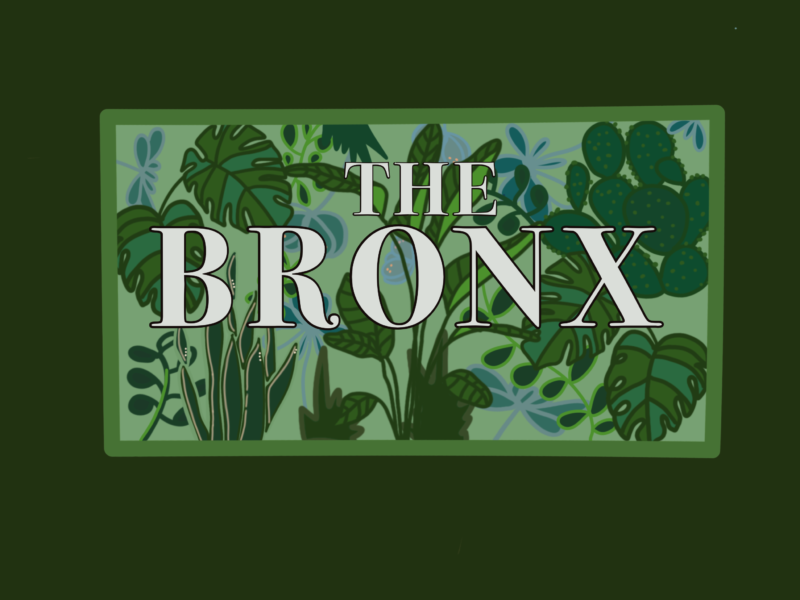Spanish is not my identity. And it’s not my language.
I’m a non-Spanish speaking, half Puerto Rican, quarter Panamanian and quarter Bajan kid from the Bronx. Like most kids with a Hispanic/Latinx background, there was a lot of pressure to learn the Spanish language, both implicit and explicit pressure. This pressure didn’t always come from my parents or grandmother, it would come from older family friends and even strangers who wanted to have an easier conversation with me. I would assure them that although I couldn’t respond to them fluently in Spanish, I could understand the gist of what they were saying. I know I’m not the only one who’s felt this pressure, and the running joke in these Spanish speaking communities is that Puerto Ricans who grew up in the US don’t understand Spanish at all.
Spanish wasn’t just another language like English. It was identity. It was culture; and this is especially true in NYC where you’re described as being “Spanish” although you aren’t a European from Spain. This correlation between Spanish as an identity and it’s link to heritage in Central/South America and the Caribbean has always fascinated me. It’s a dynamic that is rarely talked about, but I feel we need to have more conversations around. In particular, I strongly feel that there should be separation between identity, ethnicity and language for the cultures that now predominantly speak Spanish. Let me explain.
If you don’t speak Spanish, you’re seen as less (insert Hispanic/Latinx culture here). Quite frankly you’re seen as a Gringo, an English speaking person who has less of a tie to your culture and people. I think it’s wrong, but not only because my identity isn’t tied to a specific language, but for a more pervasive issue. The Spanish language in these communities is held with a higher esteem, a badge of honor, an “in-crowd” type of environment in comparison to English. (We’re all aware that we can get a better deal at a bodega or other Hispanic/Latinx owned establishment if we speak Spanish to the owner). However, what we’re subconsciously doing is trading one oppressive European culture for another, while simultaneously shunning each other for it. It’s an awkward kind of elitism, especially when Spaniards don’t even consider the “Spanish” spoken in Hispanic/Latinx communities to be “real Spanish”. Your oppressor doesn’t even cosign your identity/language.
Obviously I’m writing in English, I’m fully aware of that. In no way am I saying that we should boycott Spanish or English, it isn’t practical at this time (although I do want to dig deeper in learning the language of my indigenous ancestors, the Taino, Arawak, and Carib). What I am saying is we need to stop linking Spanish with our identity. We don’t tell the indigenous people of North America to embrace English, so why do we force Spanish upon one another? On the heels of Indigenous People’s day, the pervasiveness of colonialism is demonstrated when we see English as a colonial, European tongue, but fail to see Spanish in the same light. Even the terms Hispanic/Latinx are rooted in Eurocentric identities. Herein lies the root of my frustration.
As an Afro-Latino (a term that until recently most people wouldn’t utter because of Eurocentric fascination/ideals) I’m tri-racial – African, European and Taino/Arawak/Carib. I’m inundated with information on my European heritage. I can recall facts, time periods, and art movements in Europe because it’s what we were taught in schools. For my African heritage, I’ve only begun to look into and embrace my history, and although I can’t specifically pin point which tribe I descend from (because of the slave trade), I can guesstimate and study West African culture to find the links to my ethnic history. However, for the third part of my heritage, my indigenous Native American roots, I can’t do something as simple as look back 700 years into the history of my people. It’s extremely difficult, because my people were eradicated from their lands almost to the point of extinction. Millenia of culture, history, and ideas white-washed – as the Spanish language was thrust upon them.
In the US, non-English speaking people are seen as lesser citizens. It’s the flip-side of the same coin, and the irony isn’t lost on me. “To be American is to speak English”. So what can one do? As I look at the greater movement to look back at our collective histories, and as we right the wrongs of the past (caused by European colonialism) I can’t help but think that one of the ways we do that is to dissociate language with identity and ethnicity. I’m not British because I speak English. Yo soy Boricua y Panameo, pero I’m not Spanish. I isa Bajan. Language is a tool that helps us communicate, but it doesn’t define our ethnicity and heritage. Learn multiple languages and use them how you see fit, but don’t overlook the historical context of each either. Han-ha’n catu’.



